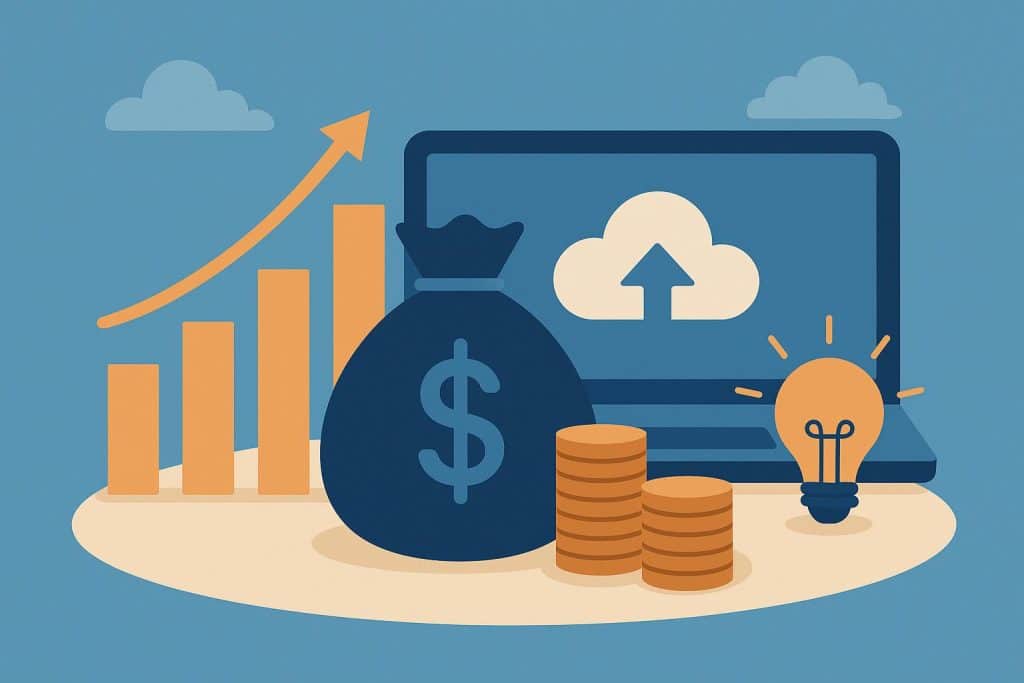Launching a SaaS product takes more than a great idea and a few lines of code. It requires time, technical talent, marketing strategy, and—perhaps most critically—funding. For many early-stage founders, securing that initial capital feels like an uphill climb, especially when bootstrapping isn’t enough to get to product-market fit. Fortunately, startup grants can bridge the gap, giving SaaS entrepreneurs the breathing room they need to build, test, and refine their vision before chasing investors or revenue.
Why Startup Grants Matter for SaaS Founders
Grants are often overlooked in the SaaS world, where venture capital tends to dominate the headlines. But unlike loans or investor funding, grants don’t require giving up equity or paying interest. They’re designed to encourage innovation, empower small businesses, and accelerate technological development—three things most SaaS startups are built around.
For founders working on software-as-a-service platforms that improve business processes, security, data management, or customer experience, grant funding can make all the difference. It can help cover development costs, support product testing, or even fund early marketing campaigns that validate the business model.
Types of Grants Available for SaaS Startups
Not all grants are created equal. They come in different forms depending on where your business is located and what stage of development you’re in.
Government innovation grants:
Governments often provide grants to encourage tech innovation and digital transformation. Programs like the U.S. Small Business Innovation Research (SBIR) grant or the Australian Government’s R&D Tax Incentive are designed to support research and development in early-stage companies. These programs can help fund everything from prototype development to market validation studies.
Private and corporate grants:
Large corporations, tech accelerators, and nonprofit organizations also fund software startups through targeted programs. For instance, AWS Activate, Google for Startups, and Microsoft Founders Hub provide credit, mentorship, and technical support. While these aren’t always cash grants, they save founders thousands of dollars in infrastructure and service costs.
Regional and industry-specific grants:
If your SaaS product focuses on a niche market—like education, healthcare, or sustainability—you might qualify for specialized grants in that field. Regional development programs also fund software projects that bring innovation to local industries or create jobs in underserved areas.
How to Qualify for a SaaS Grant
Securing a grant is competitive, but it’s not out of reach. The key is aligning your product’s mission with the grant’s objectives.
- Define a clear value proposition. Grant committees want to fund products that solve real-world problems. Clearly outline what makes your software different and how it benefits users or industries.
- Demonstrate innovation. Whether through AI, automation, or unique data insights, show how your SaaS model pushes boundaries.
- Highlight impact. Many grants prioritize social or economic benefits—such as job creation, accessibility, or sustainability. Quantify how your solution contributes to these goals.
- Prepare documentation. From business plans to proof of concept, most grant applications require evidence that your idea is more than theoretical.
- Show potential for scalability. SaaS models thrive on growth. Investors and grant panels alike want to see that your business can expand sustainably once funded.
Where to Find Startup Grants for SaaS Businesses
Finding the right grant requires research and persistence. Start with:
- Government websites: Explore national innovation departments or business funding directories in your country. They often list open programs with clear eligibility guidelines.
- Startup networks: Platforms like AngelList, Crunchbase, and local startup hubs often share information about upcoming funding rounds and grants.
- Universities and incubators: Many universities run tech incubation programs that offer grants, especially if your idea has research or educational value.
- Corporate initiatives: Keep an eye on tech giants—Amazon, Google, IBM, and Microsoft frequently announce grant-style support packages for startups using their ecosystems.
- Small business development centers: Local organizations can help identify smaller grants that may not be widely advertised but are easier to obtain.
Making the Most of Grant Funding
Winning a grant is a milestone, but using it wisely determines whether your SaaS startup gains real traction. Focus on priorities that accelerate your path to revenue—such as refining your MVP, improving product usability, or conducting market validation. Avoid stretching the funds too thin across non-essential expenses.
Many successful SaaS founders use grants as a foundation to attract private investment later. By demonstrating measurable progress—like user acquisition, engagement, or retention—you strengthen your credibility with investors and potential partners.
At this stage, some founders choose to collaborate with a B2B SaaS growth agency to make the most of their limited runway. These agencies understand how to turn early momentum into scalable marketing strategies, helping startups attract their first paying customers and build a repeatable growth engine.
Common Mistakes When Applying for Grants
Even strong SaaS ideas can be rejected for preventable reasons. Common pitfalls include vague business goals, incomplete applications, or lack of measurable impact. Always tailor your application to the specific grant—generic submissions rarely succeed.
Another common error is waiting too long to apply. Many founders assume they need to have a fully functional product before seeking support, but several grants fund the ideation or prototype phase. Acting early increases your chances of success and allows you to gather user feedback faster.
Final Thoughts: Turning Support into Sustainable Growth
Startup grants can be a game-changer for SaaS founders who are resourceful enough to find and apply for them. They give your business the breathing room to experiment, test, and pivot—without the financial pressure of external investors breathing down your neck.
While grants aren’t a long-term funding solution, they can provide the initial boost to prove your concept and get your software into the hands of real users. And when combined with strategic marketing support—whether through mentorship, community programs, or partnering with a B2B SaaS growth agency—they can set your company on the path to lasting success.
The SaaS industry rewards those who can balance vision with execution. With the right funding and focus, your software idea could be the next one that changes how people work, connect, or create.
